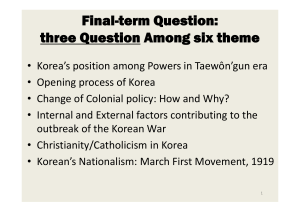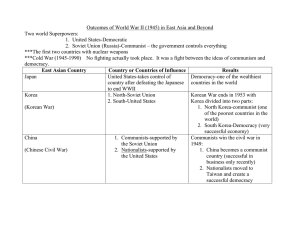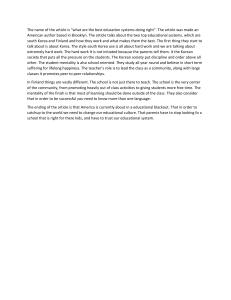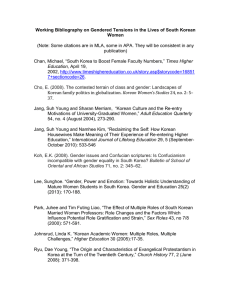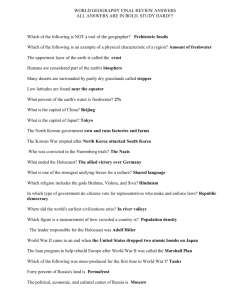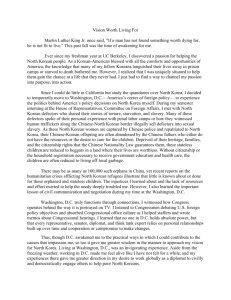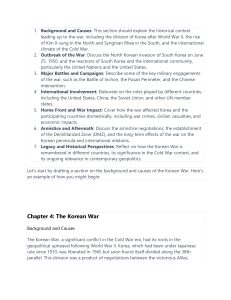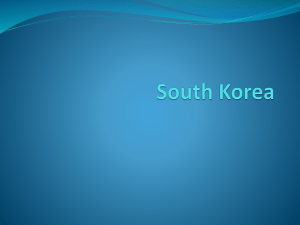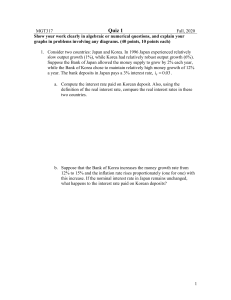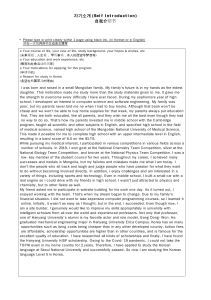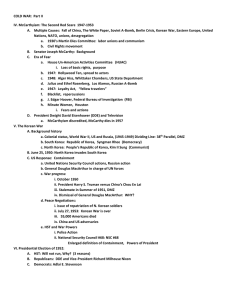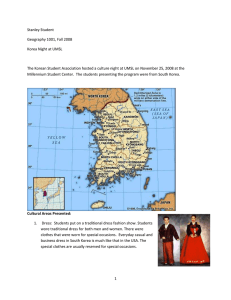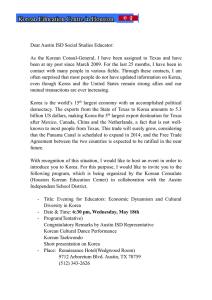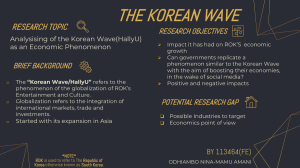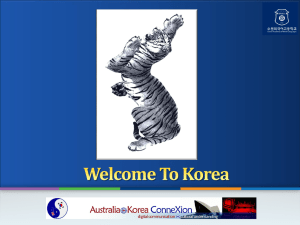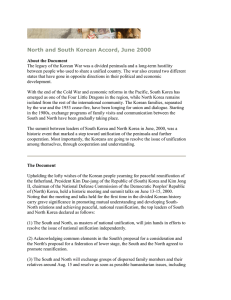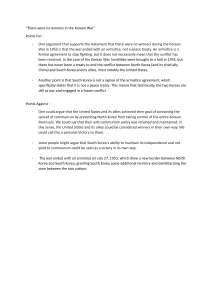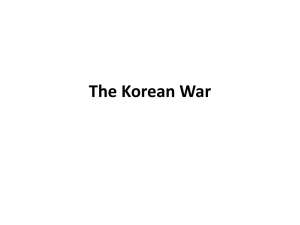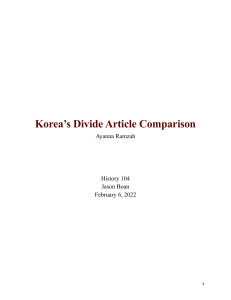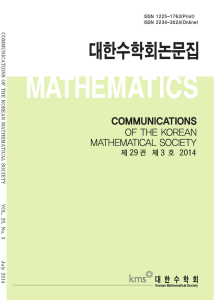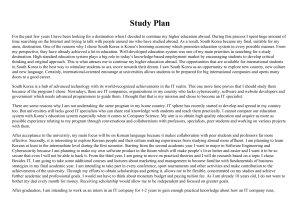Moving out of Aid Dependency: Lessons from the South Korean experience
advertisement
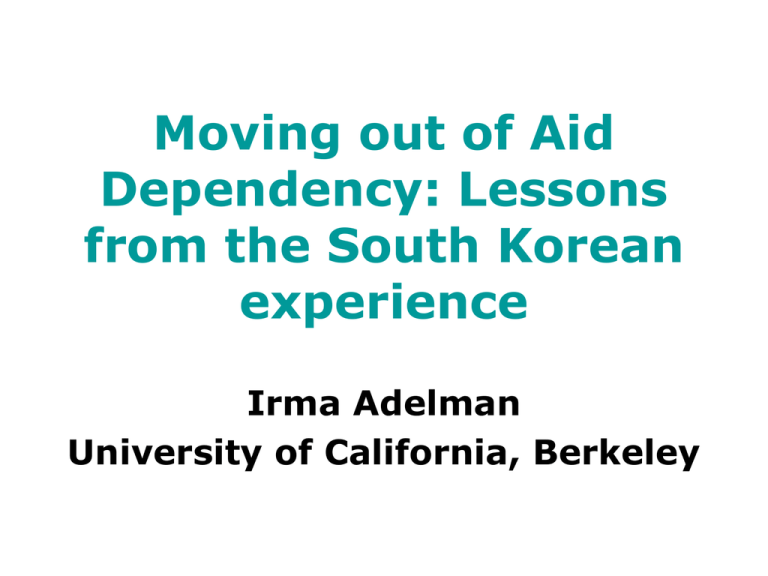
Moving out of Aid Dependency: Lessons from the South Korean experience Irma Adelman University of California, Berkeley Moving out of Aid Dependency: Lessons from the South Korean experience Accelerated development is possible The essence of development policy consists of the creation of dynamic comparative advantage. Requires anticipatory and coordinated restructuring of : -production and investment patterns - technology - social development - economic, social and political institutions - investment and trade policies The critical factors needed to generate economic development are both tangible and intangible -leadership commitment to development - social capital, including not only the level of human resources but also the degrees of social cohesion, social trust, cooperative norms and willingness to act in the social good - institutional and social resilience and malleability - appropriate policy design in investment, capital accumulation, technology and trade Government has a central role in the promotion of economic development. But its functions must adapt dynamically evolving from prime-mover and direction-setter into a quasi-Smithian State. A sound economy therefore requires a sound State The economy, society, institutions and policies must be malleable and capable of even abrupt change The prospects for economic development are intimately linked not only to the country’s own institutions and policies but also to existing global operational rules of global institutions KOREAN EXAMPLE In the early 1960’s South Korea was thought to be “a bottomless sink” for foreign aid and “a hopeless case In what was thought to be a miracle it became a fully developed and industrialized nation in a short period South Korean development went through 4 phases: • Classical import substitution (1963-1966) • Labor-intensive export-led growth (1967-1972) • Heavy industry promotion (1973-1978) • Stabilization, liberalization and economic maturity( 1979-1996) • Financial crisis (1997–1999) • Reform, restoration of growth (1999-present WTO rules either prohibit or severely restrict most measures used by South Korea for its accelerated development Aid to South Korea was mostly untied; current flows are tied
